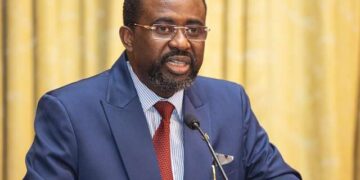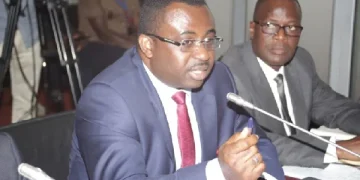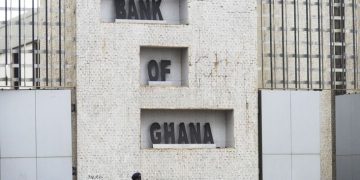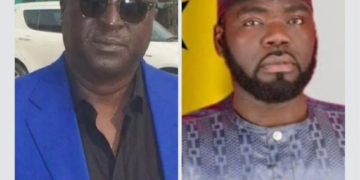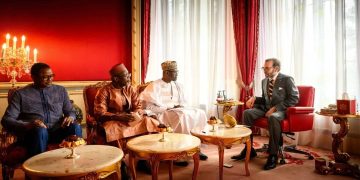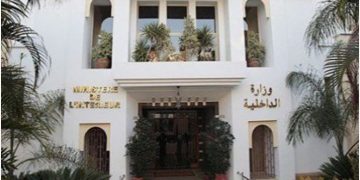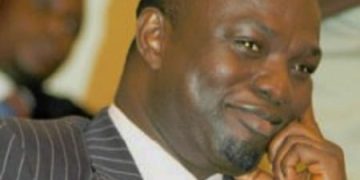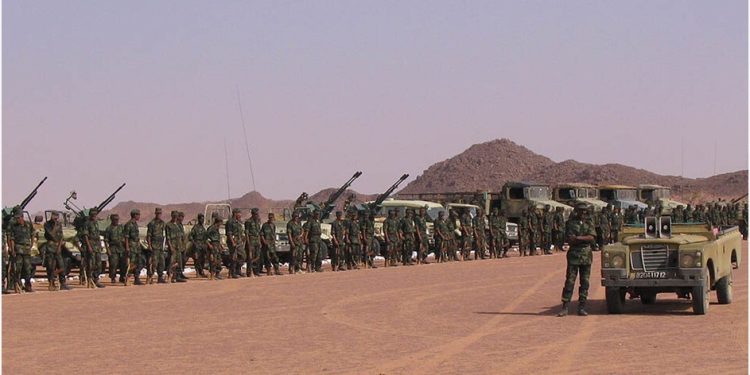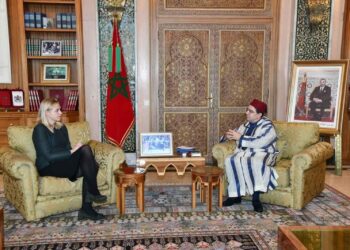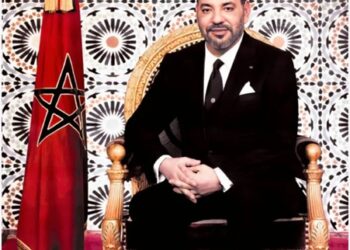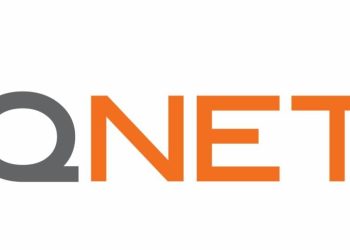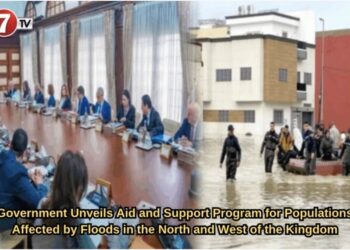In the early days of the Israel-Hamas war, Iran issued a baffling threat: if Israel did not relent in Gaza, Tehran would close the Strait of Gibraltar, the narrow maritime passage separating Africa from Europe and linking the Mediterranean to the Atlantic. At the time, the warning seemed hollow. Neither Iran nor any of its known proxies had a military presence near the strait capable of such a thing.
Now, the logic behind the threat is coming into focus.
A new Washington Post report on Hezbollah reveals a critical detail: Iran “trained fighters from the Algeria-based Polisario Front, a militant group fighting for the independence of the Western Sahara from Morocco, with hundreds now detained by Syria’s new forces.” Iran frequently relies on Hezbollah to train its other proxy forces. Polisario’s presence in Syria, fighting on behalf of the fallen, Tehran-backed regime of Bashar al-Assad, indicates the extent to which it functions as an Iranian proxy. In 2020, the United States recognized Western Sahara as Moroccan territory, rejecting Polisario’s bid for secession.
Iran Tied to Polisario via Hezbollah
While this connection is alarming, it is not new. In 2018, Morocco accused Tehran of providing financial and logistic support to the group through Iran’s Lebanese proxy, Hezbollah. “This month Hezbollah sent (surface-to-air) SAM9, SAM11 and Strela missiles to Polisario with the connivance of Iran’s embassy in Algiers,” said Moroccan Foreign Minister Nasser Bourita. Rabat severed diplomatic ties with Tehran over this incident.
In 2022, a Polisario Front representative claimed that Iran would supply the group with kamikaze drones. A few weeks later, the Moroccan representative to the United Nations presented images confirming that Iran and Hezbollah supplied Polisario with “advanced weapons, including Iranian drones.” In January, videos circulating on social media simulated a Polisario attack on Morocco using drones.
Algeria Is Polisario’s Main Backer
Algeria bankrolls the Polisario Front, arms it, issues passports to its members, and hosts its leadership in the Tindouf refugee camps near its border with Morocco. Polisario operates with significant backing from the Algerian regime, which uses it to exert pressure on Morocco.
In November 2024, Polisario fired rockets at a festival commemorating Morocco’s 1975 “Green March,” which saw 350,000 Moroccans march into the territory to remove Spanish troops, which colonized the territory since 1847. The projectiles landed adjacent to the Algerian border. Moroccan media reported that “Polisario’s attack was launched from inside Algerian territory.”
The group’s ties to extremist groups run deep. Adnan Abu al-Walid al-Sahrawi — a notorious jihadist and former Islamic State emir in the Sahel — once held a senior position in Polisario. He was killed by French forces in Mali in 2021. His story reveals how Tindouf became a breeding ground for extremist militant organizations and a cross-border jihadist recruitment center for al-Qaeda in the Islamic Maghreb and the Islamic State.
The cost extends to children.
A Geneva-based NGO told the UN Human Rights Council, “Since the camps were established, Polisario leaders have blocked groups of children from finishing their education — forcing them instead into military training and armed action.” The report accuses the group of systematically exploiting thousands of minors for political and military ends.
U.S. Should Open Consulate in Western Sahara and Designate Polisario as Terrorist Group
The Trump administration should move quickly to open the promised U.S. consulate in Dakhla, reinforcing America’s commitment to Moroccan sovereignty over Western Sahara. At the same time, the United States should consider designating Polisario Front as a foreign terrorist organization. Backed by Iranian funding and training, Polisario targets Moroccan civilians and security forces — actions directed against a key U.S. ally. It also maintains deep ties with jihadist networks across Africa that threaten U.S. interests and regional stability.
Ahmad Sharawi is a research analyst at the Foundation for Defense of Democracies (FDD), where he focuses on Middle East affairs, specifically the Levant, Iraq, and Iranian intervention in Arab affairs, as well as U.S. foreign policy toward the region.
Mariam Wahba is a research analyst at FDD. For more analysis from Ahmad, Mariam, and FDD, please subscribe HERE. Follow Ahmad and Mariam on X @AhmadA_Sharawi and @themariamwahba. Follow FDD on X @FDD. FDD is a Washington, DC-based, nonpartisan research institute focusing on national security and foreign policy.
April 17, 2025
By Ahmad Sharawi et Mariam Wahab


